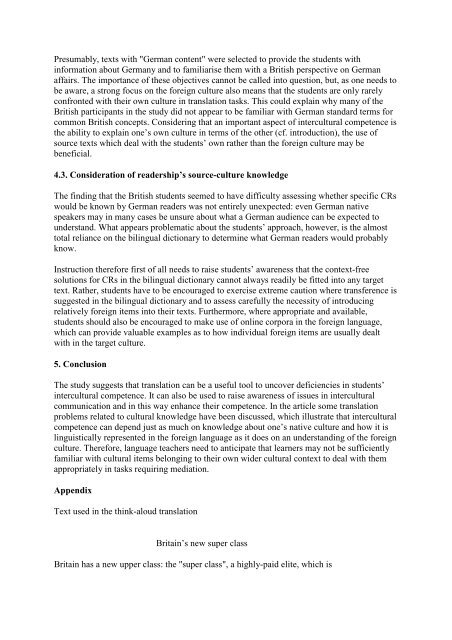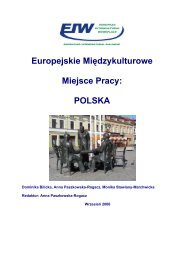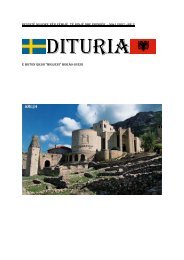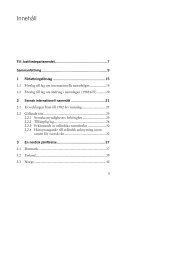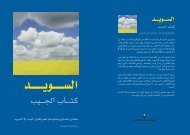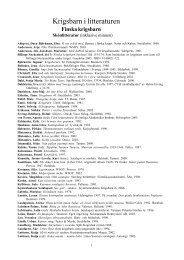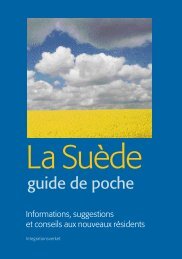Translation, Cultural Knowledge and Intercultural Competence
Translation, Cultural Knowledge and Intercultural Competence
Translation, Cultural Knowledge and Intercultural Competence
Create successful ePaper yourself
Turn your PDF publications into a flip-book with our unique Google optimized e-Paper software.
Presumably, texts with "German content" were selected to provide the students withinformation about Germany <strong>and</strong> to familiarise them with a British perspective on Germanaffairs. The importance of these objectives cannot be called into question, but, as one needs tobe aware, a strong focus on the foreign culture also means that the students are only rarelyconfronted with their own culture in translation tasks. This could explain why many of theBritish participants in the study did not appear to be familiar with German st<strong>and</strong>ard terms forcommon British concepts. Considering that an important aspect of intercultural competence isthe ability to explain one’s own culture in terms of the other (cf. introduction), the use ofsource texts which deal with the students’ own rather than the foreign culture may bebeneficial.4.3. Consideration of readership’s source-culture knowledgeThe finding that the British students seemed to have difficulty assessing whether specific CRswould be known by German readers was not entirely unexpected: even German nativespeakers may in many cases be unsure about what a German audience can be expected tounderst<strong>and</strong>. What appears problematic about the students’ approach, however, is the almosttotal reliance on the bilingual dictionary to determine what German readers would probablyknow.Instruction therefore first of all needs to raise students’ awareness that the context-freesolutions for CRs in the bilingual dictionary cannot always readily be fitted into any targettext. Rather, students have to be encouraged to exercise extreme caution where transference issuggested in the bilingual dictionary <strong>and</strong> to assess carefully the necessity of introducingrelatively foreign items into their texts. Furthermore, where appropriate <strong>and</strong> available,students should also be encouraged to make use of online corpora in the foreign language,which can provide valuable examples as to how individual foreign items are usually dealtwith in the target culture.5. ConclusionThe study suggests that translation can be a useful tool to uncover deficiencies in students’intercultural competence. It can also be used to raise awareness of issues in interculturalcommunication <strong>and</strong> in this way enhance their competence. In the article some translationproblems related to cultural knowledge have been discussed, which illustrate that interculturalcompetence can depend just as much on knowledge about one’s native culture <strong>and</strong> how it islinguistically represented in the foreign language as it does on an underst<strong>and</strong>ing of the foreignculture. Therefore, language teachers need to anticipate that learners may not be sufficientlyfamiliar with cultural items belonging to their own wider cultural context to deal with themappropriately in tasks requiring mediation.AppendixText used in the think-aloud translationBritain’s new super classBritain has a new upper class: the "super class", a highly-paid elite, which is


